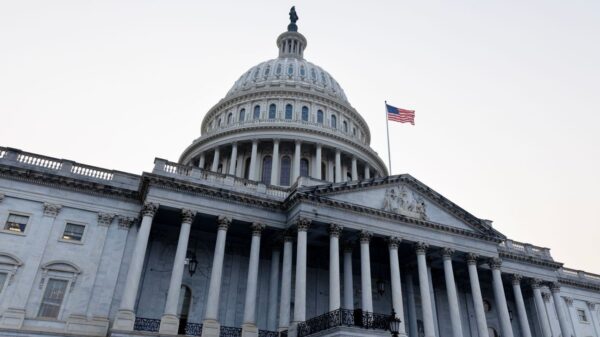UPDATE: Postal shipments to the United States have plummeted by a staggering 81% following the recent termination of the duty-free de minimis exemption for low-value packages, according to the Universal Postal Union (UPU). This urgent change, effective August 29, 2023, has sent shockwaves through international postal services, creating significant disruptions in supply chains.
The UPU reports that 88 postal operators have suspended or paused shipments to the U.S. as they adapt to these new regulations. The suspension marks a critical moment for cross-border e-commerce, where smooth postal traffic is essential for small businesses and consumers alike. Delays are likely to impact the delivery of consumer goods and could lead to unexpected costs for merchants and shoppers.
The abrupt decline in shipments was documented in UPU’s electronic network data, which revealed that traffic from member countries to the U.S. dropped dramatically on August 29 compared to the previous week. The removal of the de minimis exemption, which had allowed low-value imports to enter the U.S. free of duties and taxes, is a significant shift in trade policy, particularly following changes made during the Trump administration.
The Trump administration argued that the de minimis exemption was exploited by importers to evade duty payments. This policy change shifts the responsibility for duty collection to carriers and Customs and Border Protection (CBP)-approved entities, prompting many postal operators to halt services while they recalibrate their operations.
In response to the crisis, the UPU is rolling out a new technical solution, including a landed-cost calculator API. This tool will automate the calculation of total costs, including shipping, duties, and taxes, helping postal operators reintegrate their services effectively. UPU Director General Masahiko Metoki emphasized the organization’s commitment to ensuring the free circulation of postal items, stating:
“The UPU has in its mission the responsibility to guarantee the free circulation of postal items over a single postal territory. We’re working to uphold that responsibility with the rapid development of a new technical solution that will help get mail moving to the United States again.”
As postal operators scramble to establish compliant systems, letters and documents worth less than $800 will still be delivered. However, the long-term impacts of this policy shift are still unfolding. The transition period, mandated by the Trump administration, includes temporary flat-fee options for duty collection, which must be fully implemented by February 28, 2026.
The immediate question remains: how much financial loss will these changes incur for businesses reliant on U.S. markets? While the exact figures are still unclear, the potential for disruption in international trade is considerable.
For consumers and small businesses, the implications of this policy are profound. Those accustomed to seamless online shopping may now face delays and additional costs, impacting their purchasing decisions. The ongoing discussions between CBP and foreign partners aim to mitigate these disruptions, but the future of U.S.-bound postal traffic hangs in the balance.
As this situation develops, stakeholders are urged to stay informed about new regulations and operational adjustments from postal services worldwide. The UPU’s proactive measures are vital in navigating this new landscape, but the immediate urgency for consumers and businesses cannot be overstated.






































































